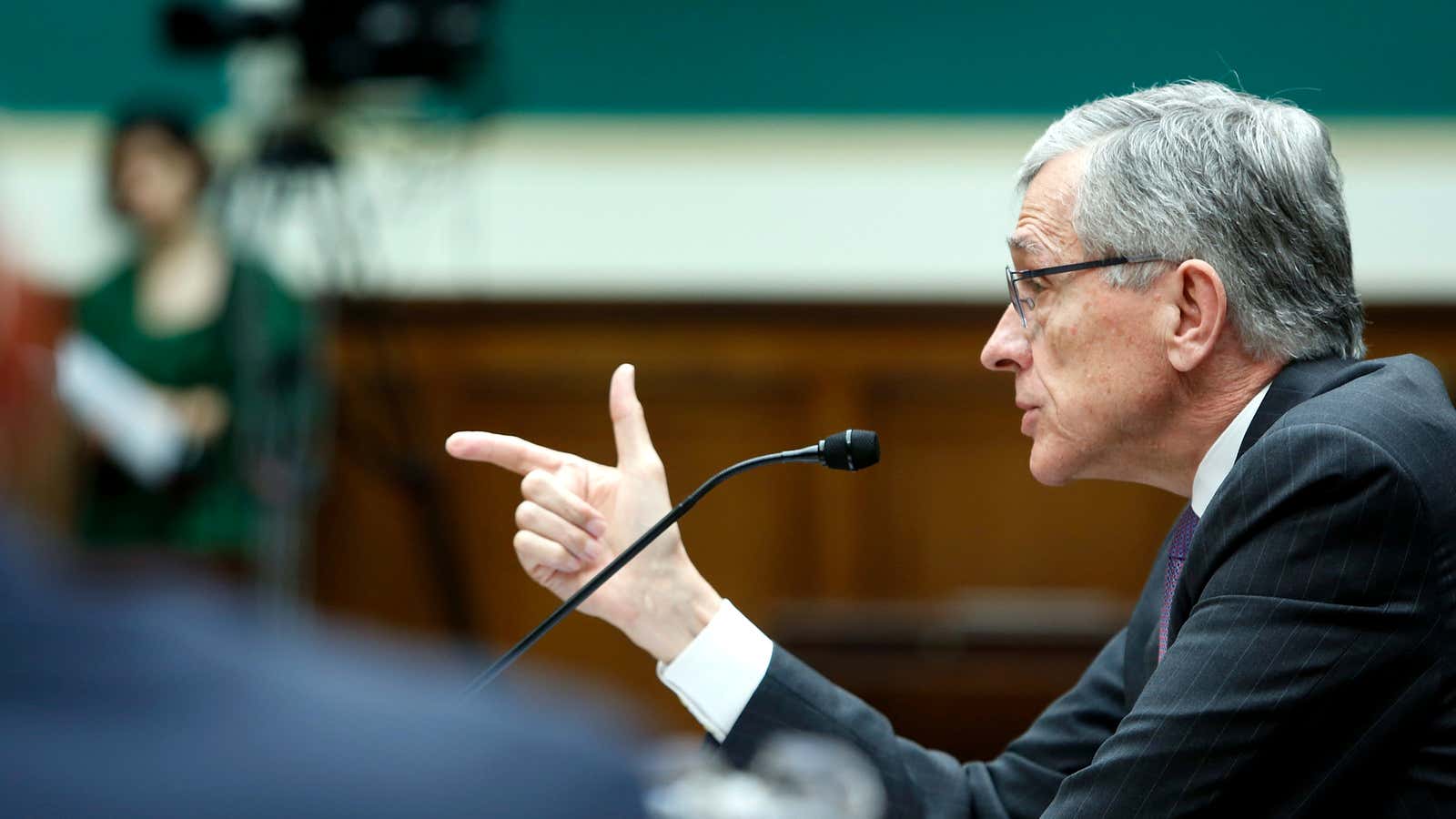As his own website crashed under the weight of public comments on net neutrality, the top communications regulator in the US was hearing protests directly from tech companies in New York City.
On July 15, at the Brooklyn office of the handicrafts e-commerce site Etsy, Federal Communications Commission Chairman Tom Wheeler met with executives from tech companies. Attendants included Kickstarter CEO Yancey Strickler, Tumblr CEO David Karp, Vimeo CEO Kerry Trainor, and representatives from Spotify, Reddit, Foursquare, General Assembly, Buzzfeed, and Warby Parker, participants told Quartz. While the FCC declined to comment on the event, it will be filing an official notice of an outside meeting on its website later this week.
Wheeler has been meeting with different internet stakeholders as his agency moves to write rules designed to preserve the “open internet” this year, but what that means and how to do it remains far from a settled matter. While internet service providers, or carriers, want the freedom to charge different rates for different kinds of data, these technology firms were asking Wheeler’s agency to treat internet communication as a public utility with no discrimination allowed, a so-called “Title II reclassification.” US regulators are, at the moment, caught in the middle.
“It’s clear the NY tech and startup community is united behind neutrality, and in agreement that Title II reclassification is the way to go,” explained Trainor, whose company hosts streaming video, in an email. “However, it was also apparent there’s hesitation from the Commission around reinstating Title II, so we all have to keep getting the word out that this is the only viable path to an open, equal web for all.”
The companies at the meeting, largely consumer-focused startups that began with an idea and a small team, fear that in the future startups will need to navigate a more complex and costly route to their users. Many of the firms who met with Wheeler are backed by Union Square Ventures, a prominent venture capital fund here with an interest in protecting the startup ecosystem.
“None of these companies, when they were small, were in a position to negotiate access deals with carriers (let alone get a good deal),” Nick Grossman, who works on policy and outreach for USV, told Quartz in an email. “They all benefitted from the environment of ‘permissionless innovation,’ where all they needed to do was have an idea, build it, and let a global audience of users (not the carriers) pick the winners.”
Wheeler has been sympathetic to these fears, but hasn’t definitively said that there will be no discrimination when the new rules are finalized. Thus far, the agency has been trying to create an open internet regime based on a US communications law known as “section 706.” But the startups, and indeed many outside legal experts, are skeptical that the commission will be able to successfully enforce rules on those grounds.
“It’s our understanding that taking a section 706 approach would not only create an environment where startups are left to negotiate deals with carriers and litigate to settle grievances, but would also leave the FCC prone to further court challenges,” Grossman said.
If Wheeler tries to split the difference between satisfying the demands of the carriers, whose investment in the basic infrastructure of the internet will be threatened by strict net neutrality rules, and the entrepreneurs, who fear the carriers’ chokehold on the pipes they use to access the internet, he may end up satisfying no one—and the struggle over this issue may end up stifling innovation.
“The cycle of litigation,” Trainor warned Wheeler, “is longer than the cycle of innovation.”




